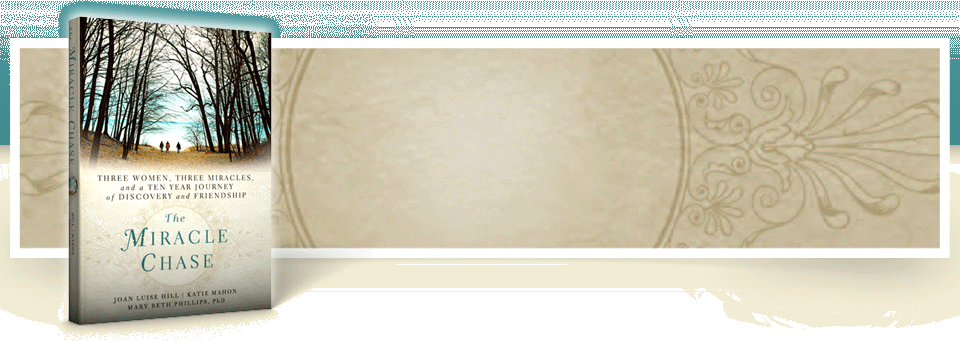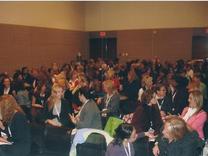Butterflies Are Free (Meb)
by Miracle Chasers on 05/22/14
Every time I have to do a presentation, an interview, facilitate a meeting or simply "sell" an idea to my boss, I get butterflies in my stomach. Some of us grew up thinking that to make a mistake is a bad thing, so we ratchet up every type of life "performance" to include the possibility of some dire consequence should things not go as planned. I've had years of practice at overcoming these butterflies, but I cannot seem to get over the fear of possible rejection, being dismissed, or the thought that I could make another bad mistake.
Science is now telling us that this type of fear, a form of perfectionism, actually stifles creativity. Apparently, the ability to succeed requires a kind of mindfulness about fear that includes both the ability to accept that mistakes will inevitably happen and the ability to actually learn from them.
Recently, Thanissaro Bhikkhu, an American Theravada Buddhist monk in San Diego commented, "Several years ago, a sociologist studied students in a neurosurgery program to see what qualities separated those who succeeded from those who failed. He found ultimately that two questions in his interviews pointed to the crucial difference. He would ask the students, 'Do you ever make mistakes? If so, what is the worst mistake you've ever made?' Those who failed the program would inevitably answer that they rarely made mistakes or else would blame their mistakes on factors beyond their control Those who succeeded in the program not only admitted to many mistakes, but also volunteered information on what they would do not to repeat those mistakes in the future.

One of the points he makes is that mistakes are not inherently bad. Life is full of mistakes and they can be viewed as personalized learning opportunities for growth and transformation. It's this part about how mistakes can inform transformation that intrigues me. If being alive means we must inevitably fail and fall, then let's keep falling forward.
So what does all this have to do with miracles? It seems to me that miracles are quite unpredictable and often messy. Those of us who like neat edges can become very challenged by a miracle's sudden appearance!
Take, for example, Katie's encounter with Ted Bundy that she shares in The Miracle Chase. In the beginning of our miracle journey, Katie was not sure she wanted to share publicly how she survived because of a miracle; even though she could admit to Joan and me that she had. She didn't trust herself. But every time she shares her story, it gets easier. Now you can read another miracle story by Katie on Guidepost's Mysterious Ways Lunch Break Miracle Blog. http://www.guideposts.org/blogs/lunch-break-miracles/the-miracle-that-woke-me-up-to-god Becoming a Miracle Chaser changed Katie. She's been called a "miracle expert" and she confidently shares her miracle experiences and her truth as a writer, speaker and leader.
Miracles take place in an imperfect world and in imperfect lives. My challenge was to learn to love the miracle. While I could see that God had provided a miracle in Elizabeth's recovery from Shaken Baby Syndrome, her blindness continued to present challenges that seemed overwhelming and unfair. It was hard to trust that the occasional light at the end of the tunnel was truly a light and not a train. Finally, I was able to understand that whether the light at the end was a train or not didn't matter; what mattered was that I be the light in the tunnel. To do that, I face down my fear that something bad can happen again every day. Gradually, I am learning that by fully feeling the fear and taking the next step anyway, I build up just enough trust to take the next step. And that's all I need to do. As Confucius says, "The journey of a thousand miles begins with a single step."
Which brings me back to butterflies. We all know that butterflies hatch from cocoons, that the caterpillar attaches to a branch, spins a cocoon, and at some point, the butterfly emerges. What really happens in that cocoon is that the caterpillar is being broken down to absolute caterpillar DNA in caterpillar goo; from this primordial slush - Transformation! - the butterfly emerges and flies high. When you look at it this way, my butterflies are miraculous signals of Transformation; they remind me that, even from my worst mistakes, I can fly.

What is one thing you can do today that stretches you enough to make you feel a tiny bit afraid, forces you to step-just one step - out of your comfort zone, that encourages experimentation, curiosity and newness? In the words of Anne Lamott, do something that gives you that "big, juicy Zorba" moment. Changes almost always make us feel uncertain and uncomfortable but Transformation doesn't happen without change. Let the miracle take you where you need to go. (Meb)







